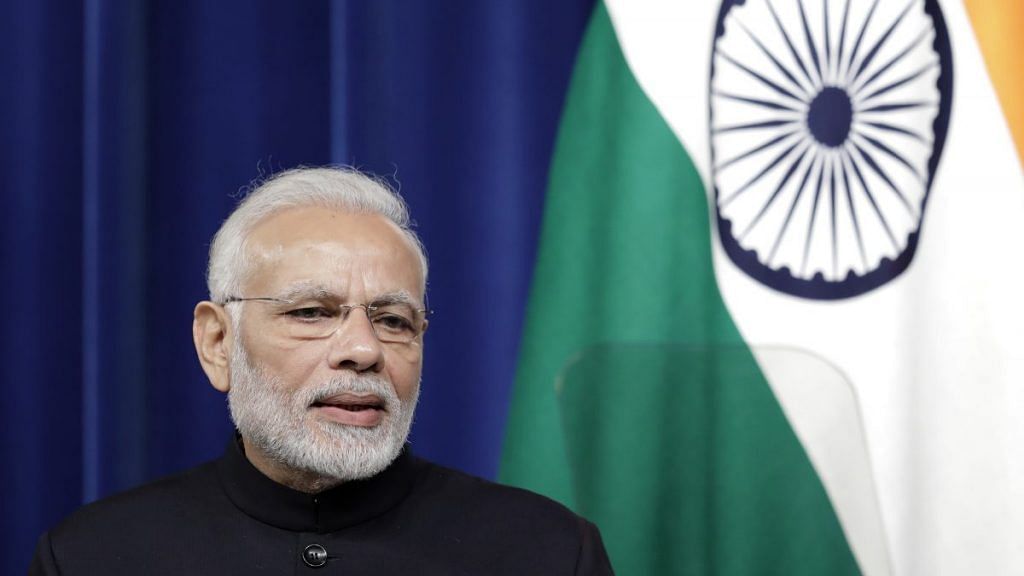If India wants to prevent Pakistan from training more terrorists in Kashmir, then it needs to revise its nuclear doctrine now. It cannot wait for another Pulwama or merely listen to Prime Minister Narendra Modi threaten Pakistan about using nuclear weapons.
The terrorist attack this year in Pulwama reopened the debate on the utility of the current Indian nuclear doctrine. It has done so by demonstrating that Pakistan is increasingly ratcheting up its support to terrorism in Indian territory in the belief that the existence of a nuclear standoff between the two countries acts as a potent deterrent for India and protects Islamabad from massive retaliation by New Delhi. The Indian Balakot airstrikes and Pakistan’s response have strengthened this Pakistani belief.
Both sides made well-calibrated forays into the adversary’s airspace but clearly signalled that neither wanted to escalate the confrontation into a major conflagration. The Indian Foreign Secretary made this clear in his statement while announcing the airstrikes that it was aimed at “non-military” targets and not at Pakistan’s military assets. Pakistan, in turn, sent a conciliatory signal by promptly releasing Wing Commander Abhinandan Varthaman who was shot down in Pakistan-controlled territory in an attempt to defuse the situation and prevent escalation.
Also read: Modi’s nuclear threat is not the end of No First Use, it’s from Obama & Theresa May playbook
Recipe for disaster
Stripped of all the jingoistic rhetoric surrounding the chain of events, the Pulwama-Balakot episode has strengthened the Pakistani assumption that the Indian doctrine of no-first-use of nuclear weapons and Pakistan’s refusal to subscribe to this doctrine has created a protective umbrella under which Pakistan can continue to support and infiltrate terrorists into Kashmir without the fear of large-scale retaliation against its vital military assets.
This assumption is buttressed by the fact that India has so far followed a policy of recessed deterrence by keeping its nuclear weapons and delivery systems apart. Furthermore, India has not committed itself openly to the development of tactical nuclear weapons, whereas Pakistan reportedly has accumulated a modest arsenal of such weaponry. The combination of Pakistan’s refusal to subscribe to the no-first-use doctrine and its possession of tactical nuclear weapons provides assurance to the Pakistani policymakers that Islamabad can counter Indian conventional superiority by creating enough uncertainty in Indian minds to prevent the latter from escalating its retaliation against terrorist acts beyond minimal surgical strikes.
This is a recipe for continuing Pakistani support for terrorism in Kashmir and elsewhere in India. It is time, therefore, for India’s policymakers to reassess the usefulness of the current nuclear doctrine.
Also read: Modi should know India’s status as a nuclear weapon state demands responsible leadership
Rethinking nuclear doctrine
A re-calibration of this doctrine would not necessarily mean totally rescinding the no-first-use doctrine. What it would entail is publicly hedging the doctrine in ways that would create enough uncertainty in Islamabad’s mind that its support for terrorism may land it in a major war with its larger neighbour that may eventually escalate at least to the use of tactical nuclear weapons.
In order to create this uncertainty, New Delhi should issue a White Paper immediately after the Lok Sabha elections, sophisticatedly amending its nuclear doctrine and clearly implying that its new doctrine circumscribes no-first-use in fundamental ways to take into account the threat of externally supported terrorism. This change combined with India’s current stand that it does not acknowledge a firewall between tactical and strategic nuclear weapons is likely to scare the Pakistani political and military elite sufficiently to desist from, or at least de-escalate, their support for terrorist activities in Kashmir and elsewhere in India.
Also read: Why India is developing nuclear capability beyond what is required for retaliation
A responsible nuclear power
This re-calibration of the Indian doctrine will have to be done in such a manner that it only minimally affects India’s international standing and its image as a responsible nuclear power.
This is necessary in order to make India’s bid for membership of the Nuclear Suppliers’ Group and permanent membership of the Security Council, both stymied by Chinese opposition, credible and to protect the India-US civil nuclear agreement from attack and erosion by nuclear sceptics in the US Congress and elsewhere.
The reformulation of the nuclear doctrine has to be carried out in such a way as to put Pakistan in the dock and to put the onus of any prospective change in the Indian doctrine squarely on Pakistan’s support for cross-border terrorism. The argument made within India and outside that India should adhere strictly to its doctrine of no-first-use and recessed deterrence does not hold water any longer.
It is true that India must balance its search for security with its quest for international respectability. However, this does not mean that it should sacrifice the former at the altar of the latter. For any nation-state, especially one at the early stage of state-making and nation-building, security is paramount and its demands cannot be diluted by vague desires for international acceptability and adherence to internationally sanctioned norm-based behaviour, especially when the latter are flouted by major powers with impunity.
Balancing multiple pressures is an essential part of foreign policy and diplomacy, but it should not become a fetish with policymakers. They must be clear-headed in their assessment of the nation-state’s priorities and not equate essential goals with secondary objectives.
The author is the University Distinguished Professor Emeritus of International Relations, Michigan State University, and Non-Resident Senior Fellow, Center for Global Policy, Washington DC. Views are personal.
